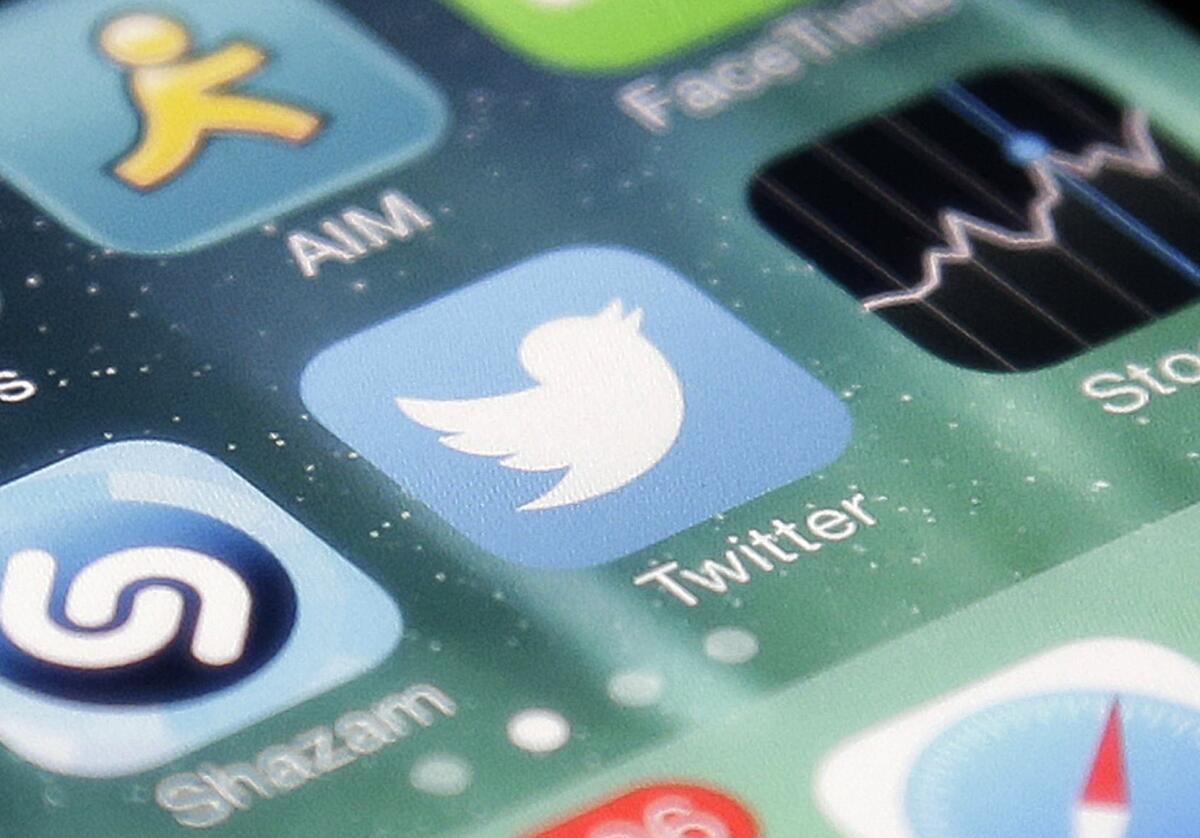Twitter’s political ban will exempt some ‘issue’ ads

- Share via
Twitter Inc. is making some exceptions to its recent ban on all political advertising, announcing Friday that it will allow “cause-based” ads for some economic, environmental or social issues.
There will still be certain restrictions for those promotions, often referred to as issue ads. Groups that promote content about a cause — climate change, for example — can’t link to a specific candidate’s landing page, promote the ad on behalf of a candidate or mention a particular piece of legislation. Such ads also won’t be able to target people using specific identifiers, such as email addresses or ZIP Codes.
Candidates, elected officials and political parties will be banned from buying any ads at all, including ones about issues or causes.
The point, Twitter said, is to allow advertisers to encourage discussion around certain subjects but not directly influence elections.
“While advertising should not be used to drive political, legislative or regulatory outcomes,” Twitter general counsel Vijaya Gadde said on a conference call with reporters, the company believes “there is certain cause-based advertising that can facilitate public conversations about important topics.”
Twitter’s policy comes amid a presidential campaign in full swing less than a year before the election and runs counter to rules Facebook Inc. has established for its social network. Facebook does allow political advertising but doesn’t fact-check those ads the way it does nonpolitical ads. That policy has generated intense pushback from some candidates, including Sens. Elizabeth Warren (D-Mass.) and Bernie Sanders (I-Vt.).
Twitter won’t fact-check cause-based ads either. “One of the benefits of Twitter being a primarily public platform is that you can absolutely be called [out] and held accountable for what you say,” explained Del Harvey, Twitter’s vice president of trust and safety. Advertisers will still need to follow the company’s existing ads guidelines, which prohibit things such as hateful or sexual content.
Twitter said it unveiled its new rules to better prepare advertisers and the media before it implements its ban on all political ads on Nov. 22. Still, the policy is complicated and bound to draw criticism. It could be challenging, for example, to determine when an advertiser crosses the line from promoting a topic for the sake of discussion, to pushing for some kind of political or regulatory outcome. “We tried to make this policy as clear and straightforward as possible, but there are ... some areas that are going to be more subjective,” Harvey said.
“When we find ourselves in those types of situations, we’ll be sure to be transparent about how and why a decision was made,” Gadde said. “But I want to be open that we’re also prepared that we’re going to make some mistakes.”
Harvey said Twitter doesn’t expect the political ad ban to affect business in the short term, and does not anticipate any changes in its fourth-quarter guidance. Chief Financial Officer Ned Segal said last month that Twitter collected just $3 million in political advertising revenue around the 2018 U.S. midterm elections.
Twitter shares rose 1.25% to $29.25 on Friday.






